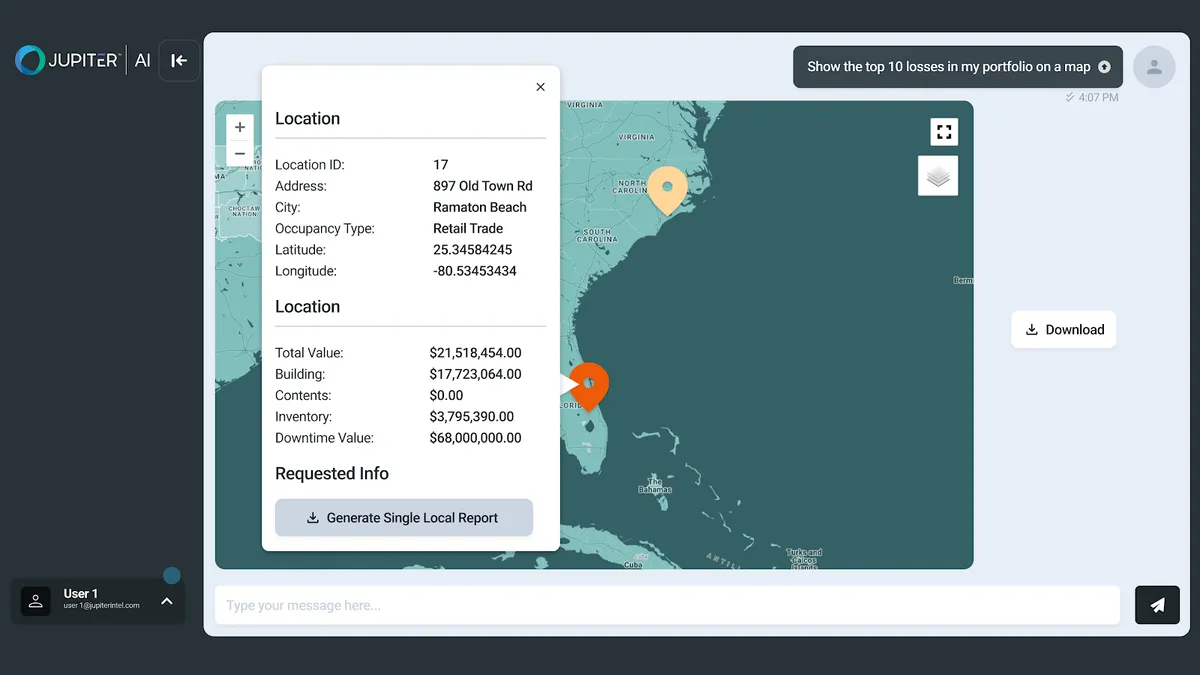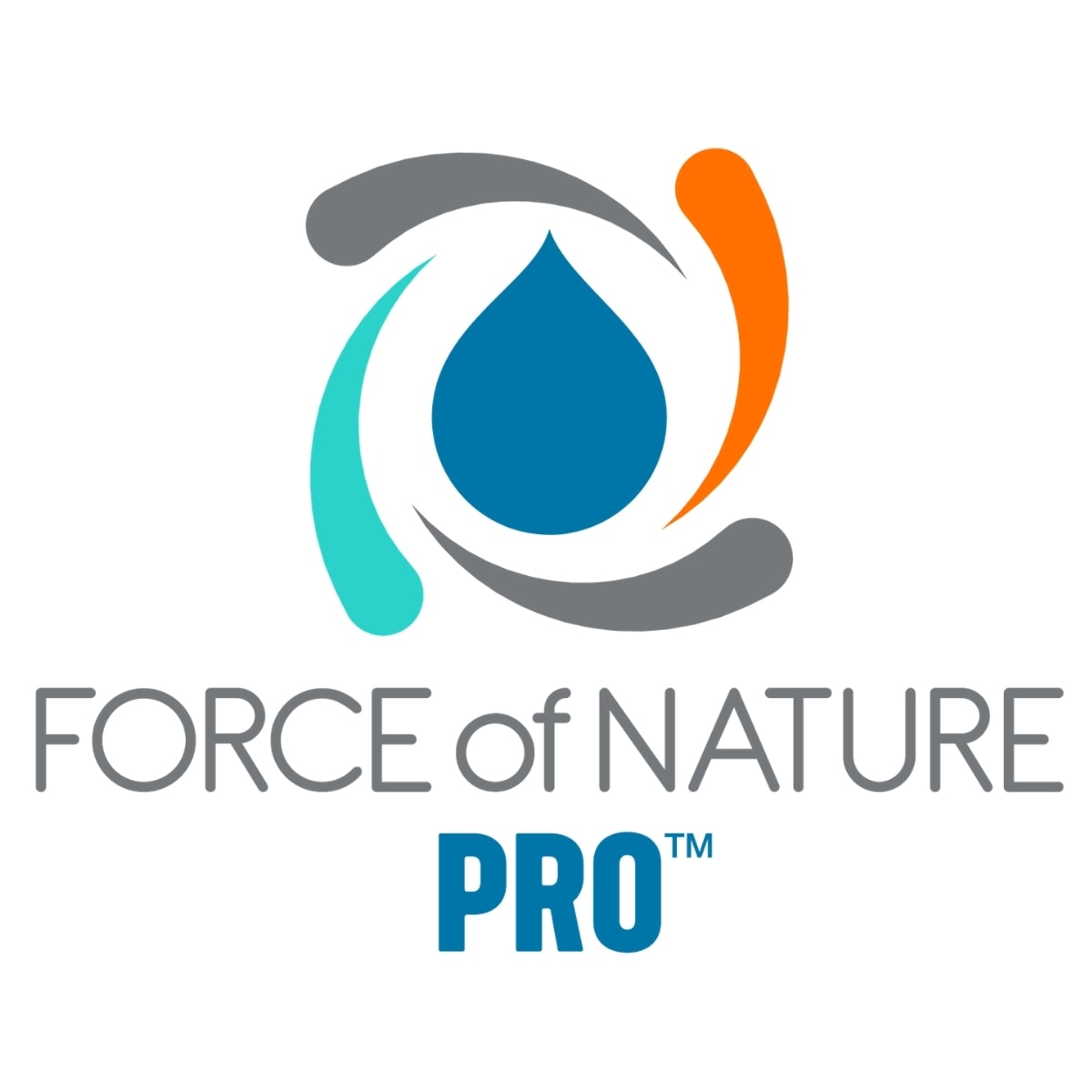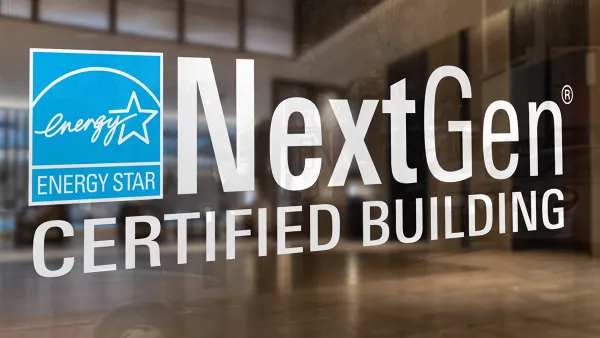Dive Brief:
- Climate risk analytics firm Jupiter has launched a generative artificial intelligence tool for its ClimateScore Global platform that can help building operators understand the impact of climate factors on building costs and how they can protect their facilities from disruptions.
- The conversation-assisted tool, Jupiter AI, can evaluate the impact of climate risks over different time frames and return periods that users can tailor to consider specific needs and scenarios, offering medium- and long-term projections of future risk, Jupiter said in a June 18 news release.
- ClimateScore Global quantifies physical risks to businesses resulting from climate change and aims to boost resilience, help mitigate impacts on companies’ operational and financial performance, ease the process of complying with climate regulations, according to the company website.
Dive Insight:
Climate hazards including floods, wildfires and heat waves can impact the economics of buildings by causing shutdowns and increasing operational costs, said Jupiter CEO Rich Sorkin. For example, a flood can reduce a building’s useful life and create cleanup costs, while hail can damage a roof. These climate conditions have been a focus of the metrics Jupiter provides to customers for nearly a decade. It recently added an economic impact layer to quantify these effects in dollar terms, Sorkin said.
“Originally, we just told [business users] there was one meter of flooding in a particular facility,” said Dinesh Sharma, head of science, technology and products at Jupiter. The economic impact layer addresses what one meter of flooding means to “that particular facility in terms of dollars and cents,” Sharma noted. “Now, we want to make all of this information much more easily accessible to anyone inside the enterprise.”
Using a simple query model akin to ChatGPT, Jupiter AI allows users to ask straightforward curated questions and receive actionable answers in seconds, including climate impact analysis and comprehensive visual data presentations related to their entire portfolios of assets, according to the release.
“It's going to be presented in formats like Microsoft Excel tables, or charts, or maps, all of which are much more easily shared. And those are much more easily understood by fellow business colleagues,” Sharma explained.
The tool also recommends additional queries to expand a user’s understanding of climate change, Jupiter said in the release.
Users can filter data directly in the chat interface, giving them more control over how they can present their insights to stakeholders, per the release.
Jupiter’s customers include JLL, Cushman & Wakefield, Skanska and Consolidated Edison, according to company slides shared with Facilities Dive.












